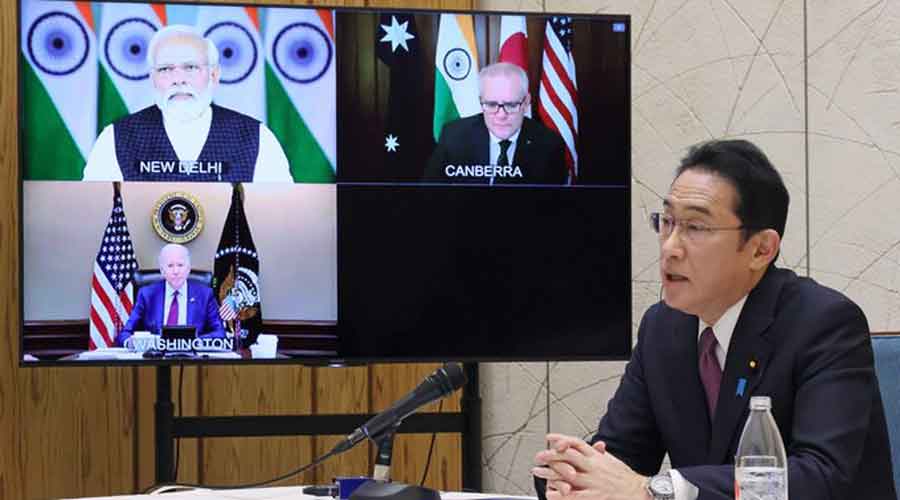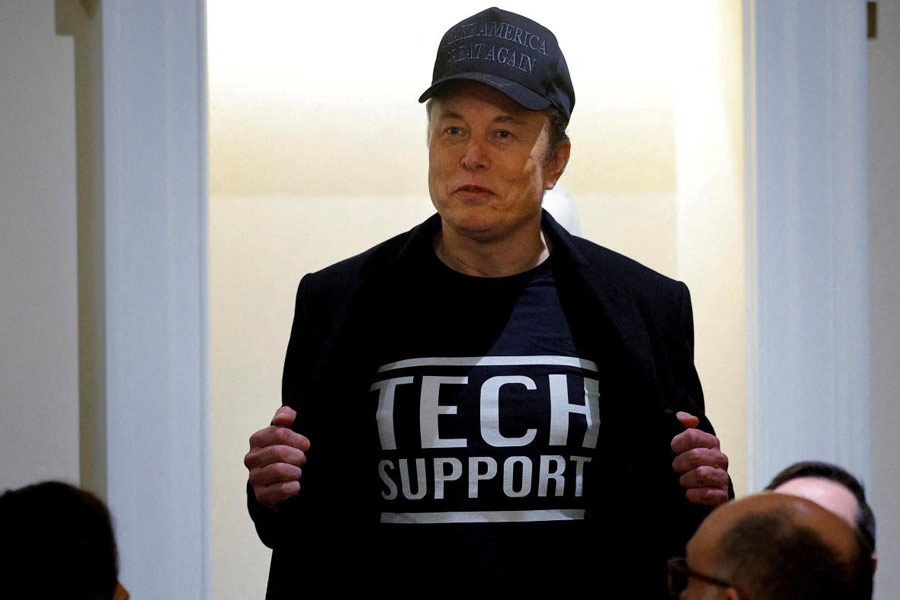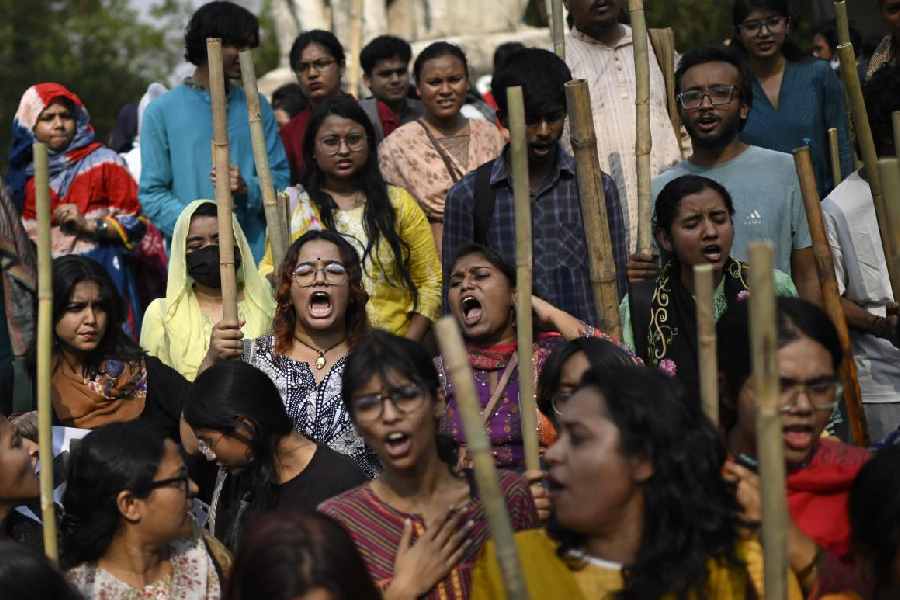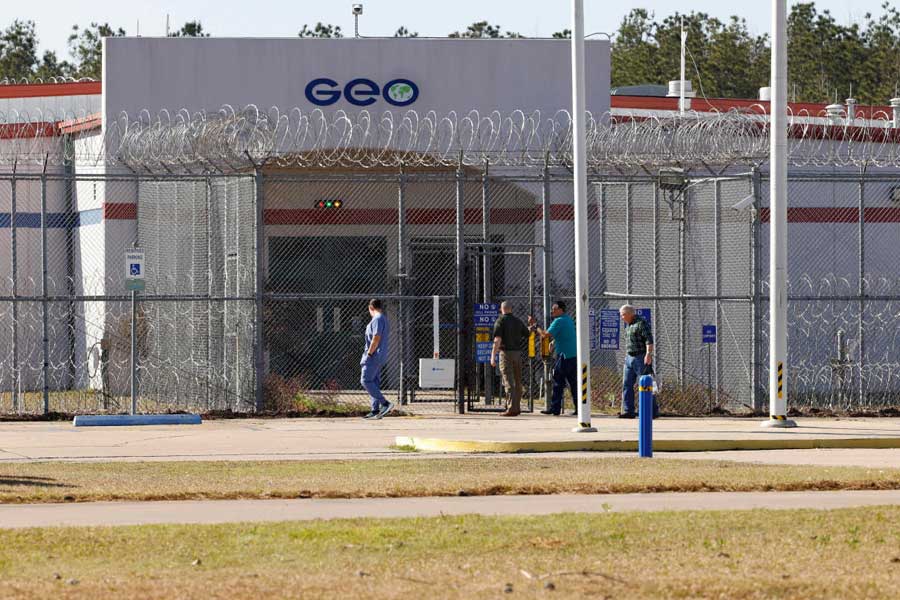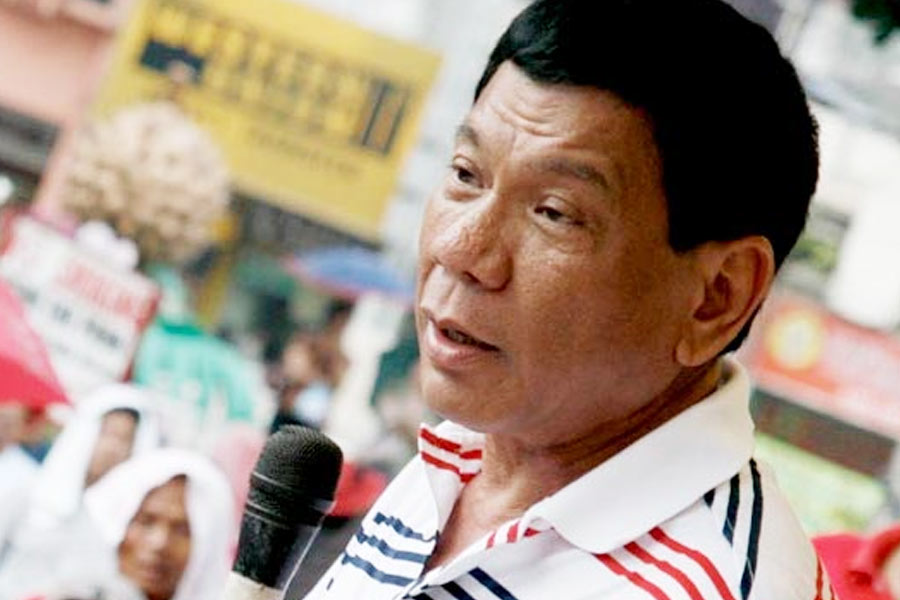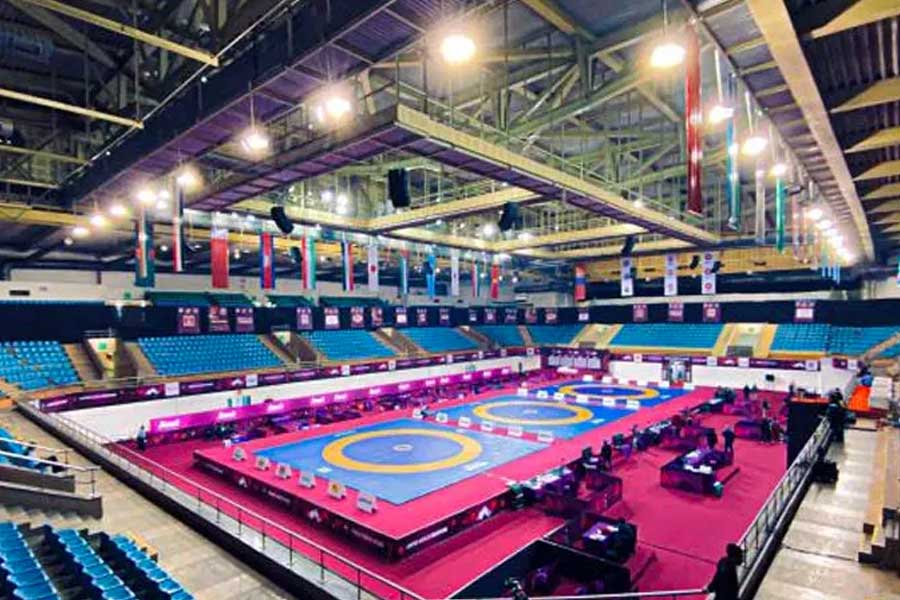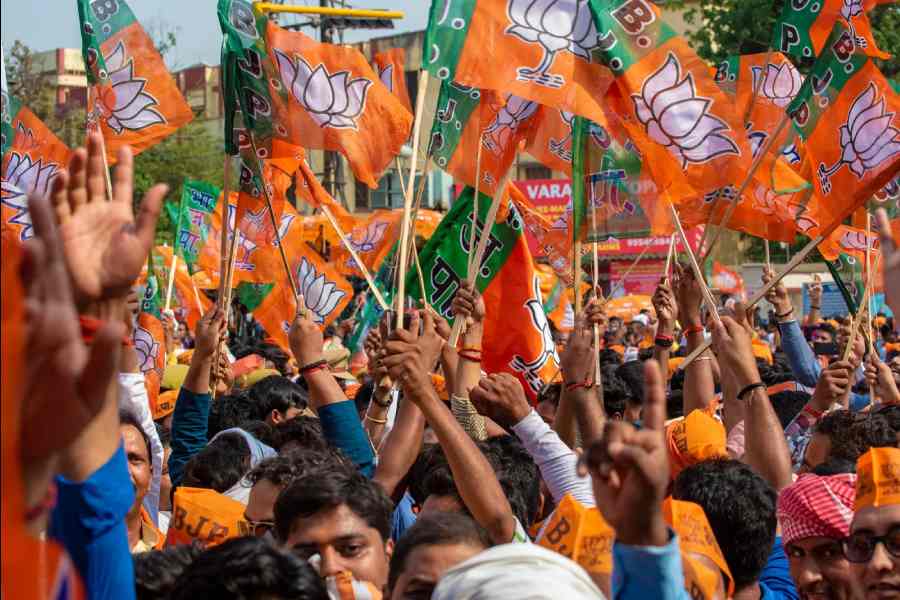Leaders of the Quad held a summit-level meeting in the virtual mode on Thursday evening to discuss the Ukraine situation and its implications on the Indo-Pacific but there was no criticism of Russia in the joint readout issued by Washington though three of the four members have announced sanctions on Russian entities and individuals.
“They agreed to stand up a new humanitarian assistance and disaster relief mechanism which will enable the Quad to meet future humanitarian challenges in the Indo-Pacific and provide a channel for communication as they each address and respond to the crisis in Ukraine,” the readout said.
The Quad leaders — representing India, the US, Japan and Australia — reaffirmed commitment to a free and open Indo-Pacific in which the sovereignty and territorial integrity of all states is respected and countries are free from military, economic and political coercion.
Before the joint readout was released, Japan and India issued separate statements. The Indian readout said the humanitarian implications of the “developments in Ukraine” were discussed and Prime Minister Narendra Modi stressed the need to return to dialogue and diplomacy.
Modi’s Japanese counterpart Kishida Fumio tweeted: “Unilateral changes to the status quo by force or coercion like the recent Russian aggression against #Ukraine are also unacceptable in the Indo-Pacific region. It is critically important for us to bring about a free and open Indo-Pacific.”
With India being the lone member of the Quad that has not criticised Russia openly for its actions, Thursday’s unscheduled meeting was seen as yet another attempt to bring India on to the same page.
India has repeatedly refused to pick a side and condemn Russia at various multilateral fora — the latest being at the International Atomic Energy Agency (IAEA) where it abstained from voting on a resolution criticising Moscow for the “invasion of Ukraine” — insisting that diplomacy and dialogue is the only way out.
India has maintained that the legitimate security interests of all parties should be fully taken into account, obliquely referring to the suggestion that the crisis in Ukraine is a result of holding on to Cold War structures and expanding Nato to Russia’s borders despite the assurance given in 1990 at the time of the reunification of Germany that this military alliance will not spread east of its then eastern border. Nato has since increased its membership from 16 to 30.
That Ukraine is the agenda was revealed by the White House while announcing President Joe Biden’s schedule for the day. “In the morning, the President will hold a secure video call with fellow Quad Leaders… to discuss the war against Ukraine and its implications for the Indo-Pacific.”
The Indian announcement of the meeting earlier in the day made no mention of Ukraine, referring instead to the Quad’s usual agenda.
Later, responding to Quad-related questions at the daily briefing on the Ukraine evacuation, external affairs ministry spokesperson Arindam Bagchi said this was not a “regular meeting” of the Quad leadership, which, with Thursday’s engagement, has now held summit-level talks thrice in less than a year.
About the evacuation and Russian allegation that Ukraine was holding Indian students hostage to be used as human shield, Bagchi said: “We have not received any reports of any hostage situation regarding any student.” He acknowledged the cooperation of Ukrainian authorities in helping students move out of Kharkiv and neighbouring areas.
The Russian allegation was made in the Kremlin readout of President Vladimir Putin’s conversation with Prime Minister Narendra Modi on Wednesday night.
Putin repeated this on Thursday evening in a televised address where he claimed the Ukrainians had held 3,000 Indian students hostage in a train station. The Ukrainian foreign office had countered his allegation on Wednesday with a plea to the governments of India, Pakistan, China and other countries “whose students have become hostage to the Russian armed aggression in Kharkiv and Sumy to demand from Moscow that it allows the opening of a humanitarian corridor to other Ukrainian cities’’.
Around 1,000 Indian students – stranded in Kharkiv city -- have reached the Russia-designated “safe zone” of Pisochyn , an urban settlement in the province. India had issued an urgent advisory to them on Wednesday afternoon to move to Pisochyn and two other urban settlements in the province on the basis of inputs provided by the Russians.
The majority of those in Kharkiv managed to reach Pisochyn but a 100-odd students are said to be still in the city. The embassy has asked them to register their details on the website so that they can be taken out whenever a safe option opens. Likewise, the ministry acknowledged that there are several hundred students stranded in Sumy, another city in the conflict zone in Eastern Ukraine. “We are trying to work out a safe route for them,” Bagchi said.
In an indication that the situation was becoming dire for those still stranded in Ukraine, particularly Kharkiv – which has been subject to intense bombing by the Russians – the defence ministry issued a detailed advisory listing dos and don’ts and survival guidelines.
As for the Russian defence ministry offer to take the students stranded in Kharkiv out through Russian territory and fly them home, Bagchi was not willing to comment on this in detail. “We are in talks with them. Once they are out of Ukraine, we can also send in our flights to fly them out.’’
India already has a team in place in Belgorod, a border area on the Russian side to assist Indians who may be able to exit through the Russia-Ukraine border.
Flights, the ministry has been maintaining, are not a constraint with four private airlines and Indian Air Force now part of Operation Ganga. Of the estimated 22,000 Indians in Ukraine, 18,000 are already out of the country.
In all, 30 evacuation flights since last Thursday have brought back 6,400 Indians till date. Another 18 flights are scheduled over the next 24 hours – seven from Bucharest, five from Budapest, three from Rzeszow in Poland and one from Kosice in Slovakia.
A new location, Suceava near the Romanian border, has been added to cut the travel time to Bucharest from the border crossing point. Two flights have been scheduled out of Suceava.

